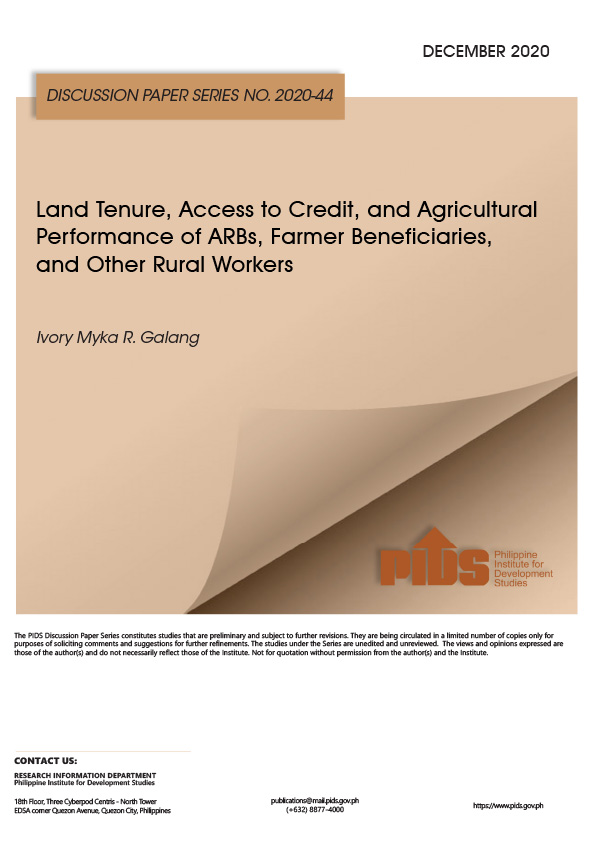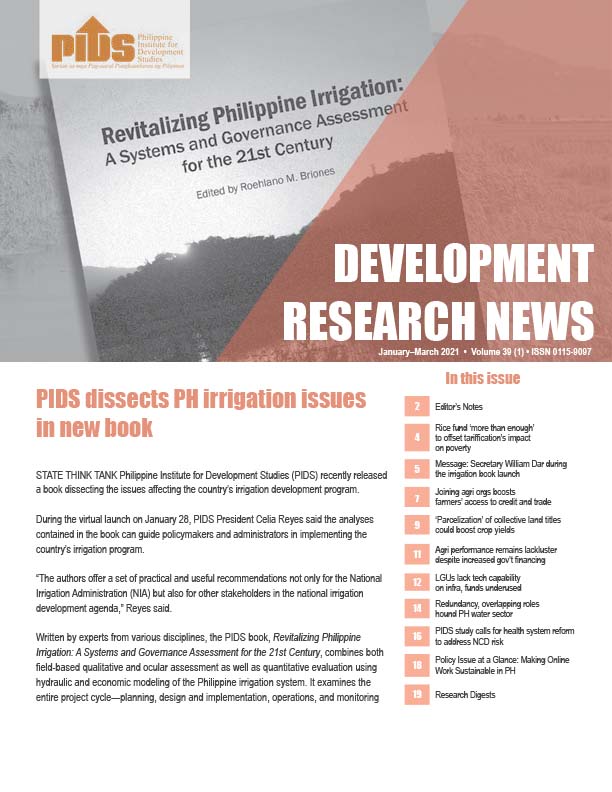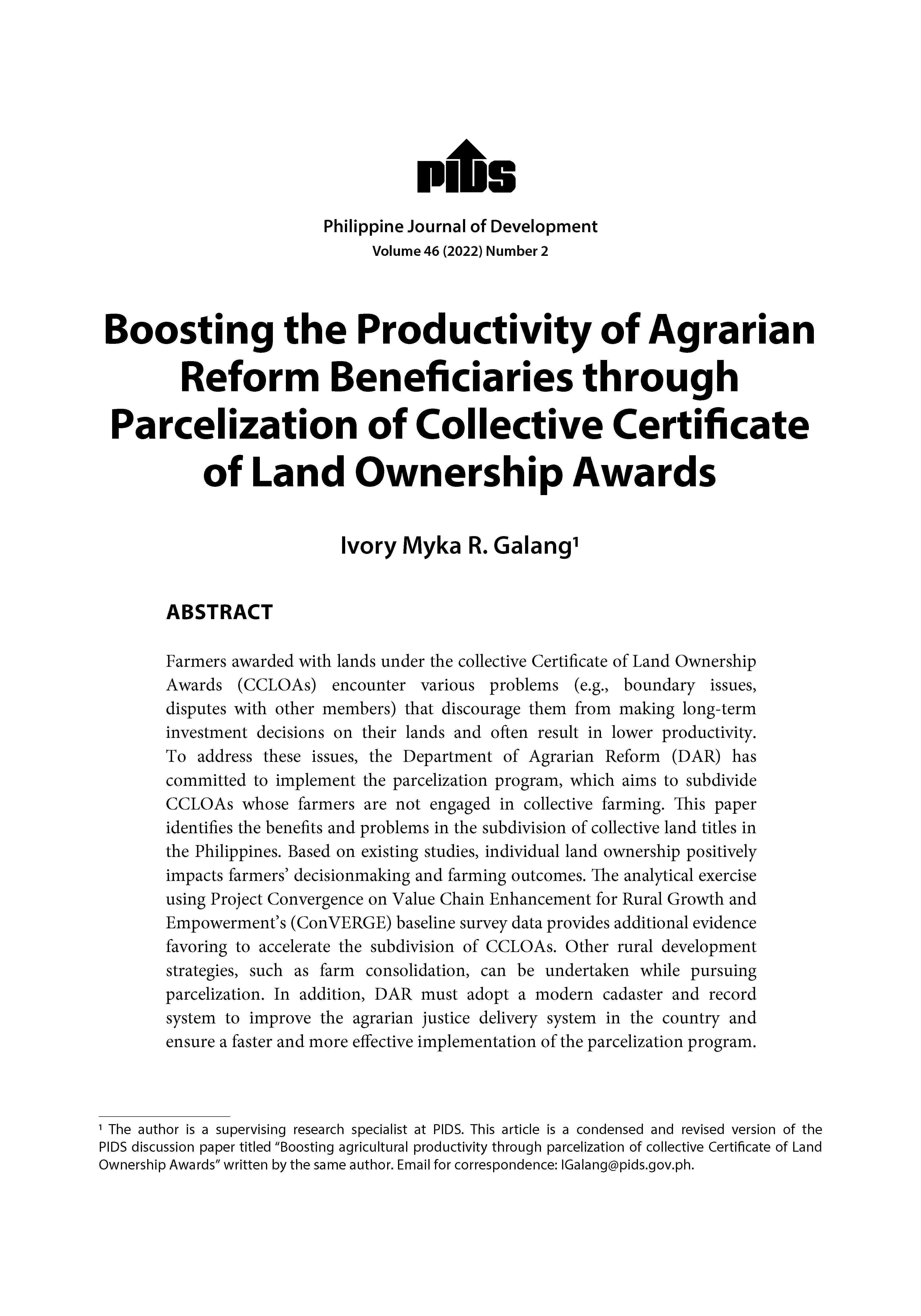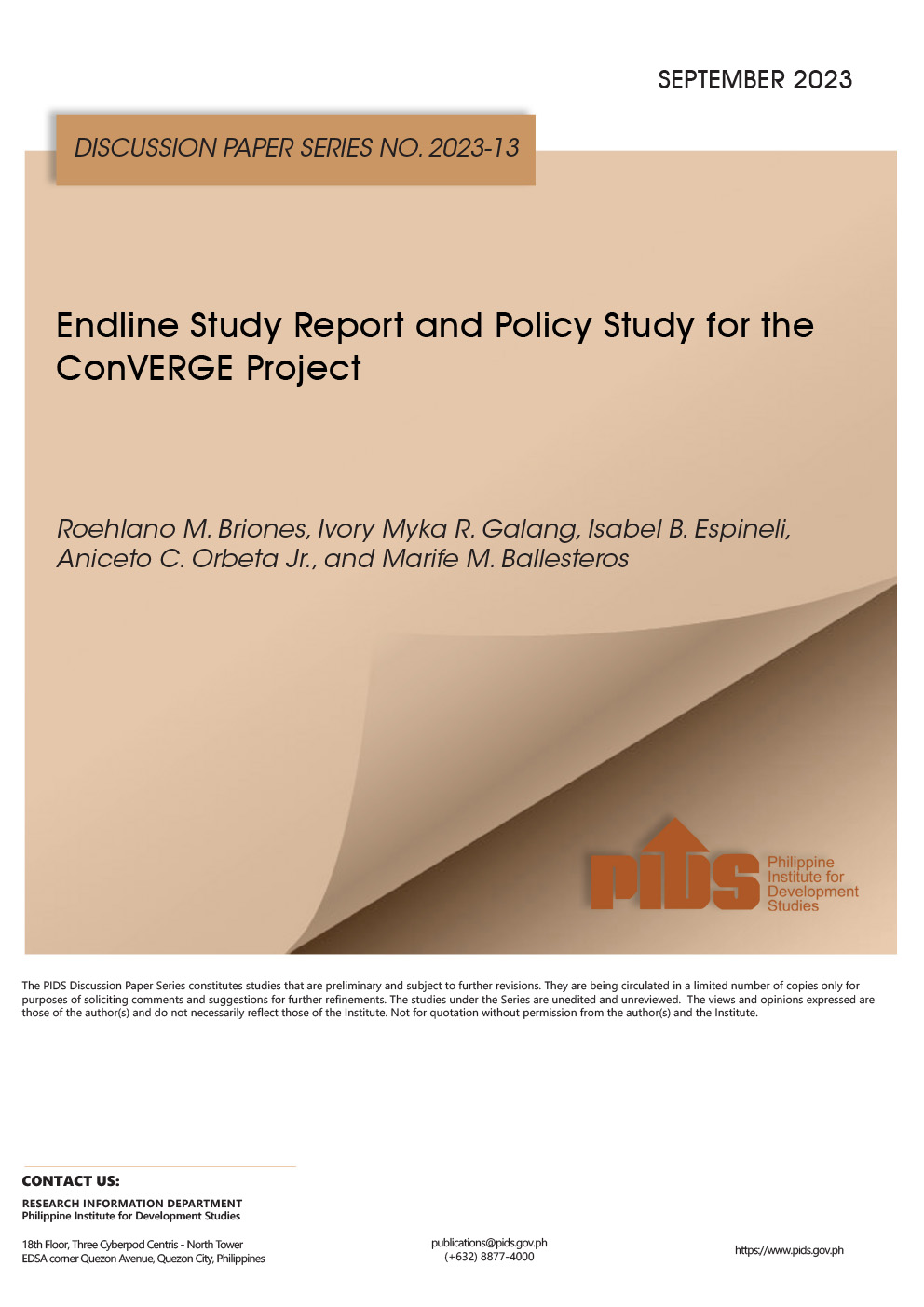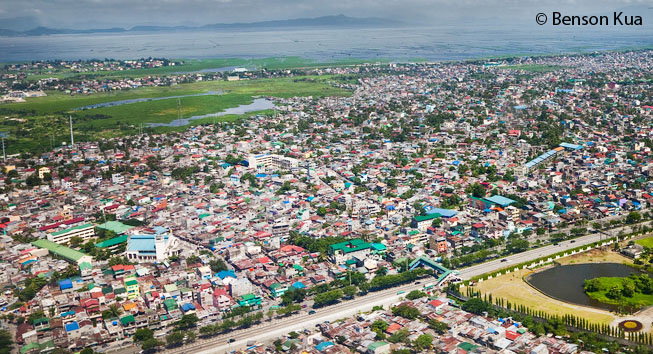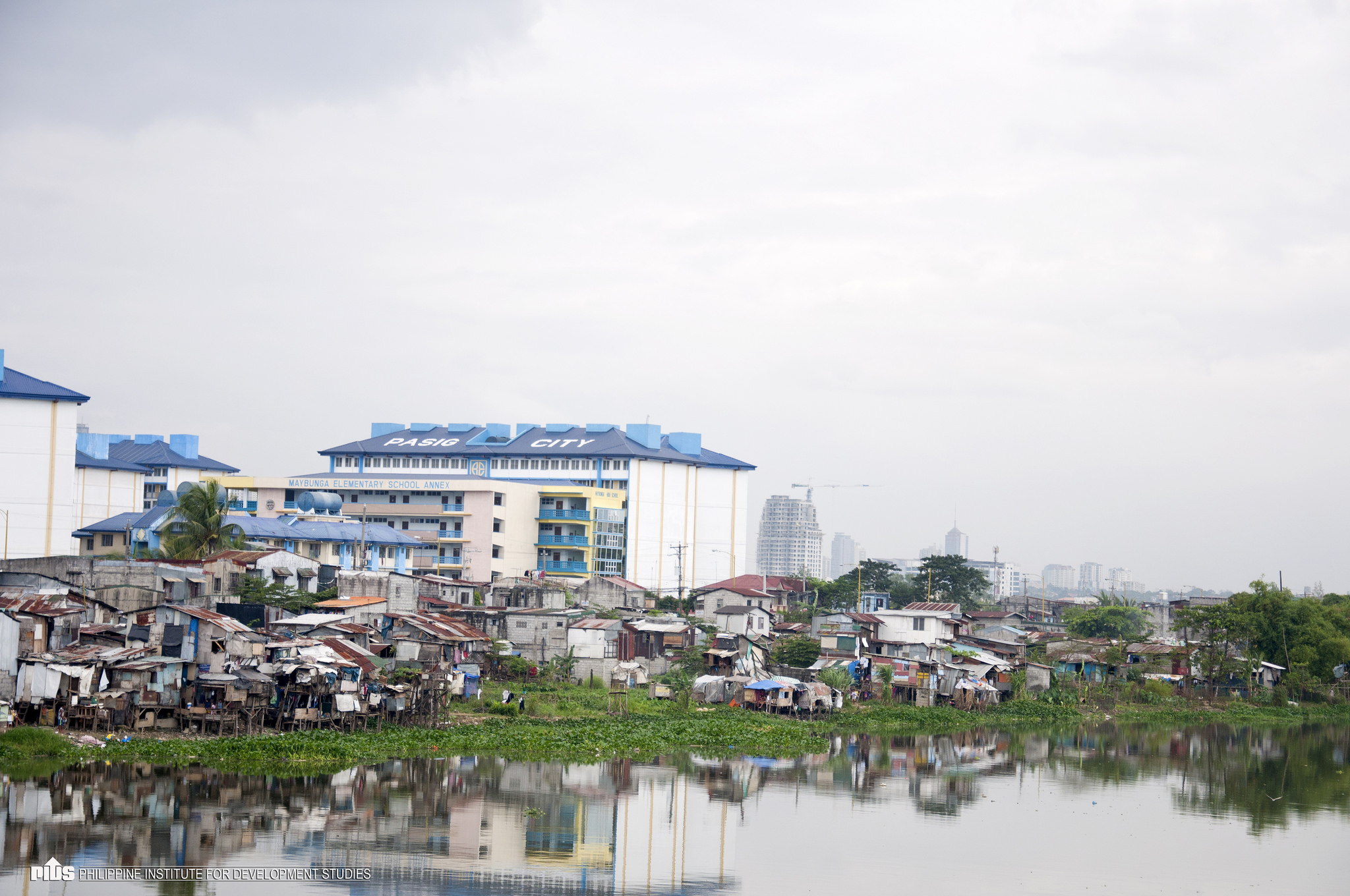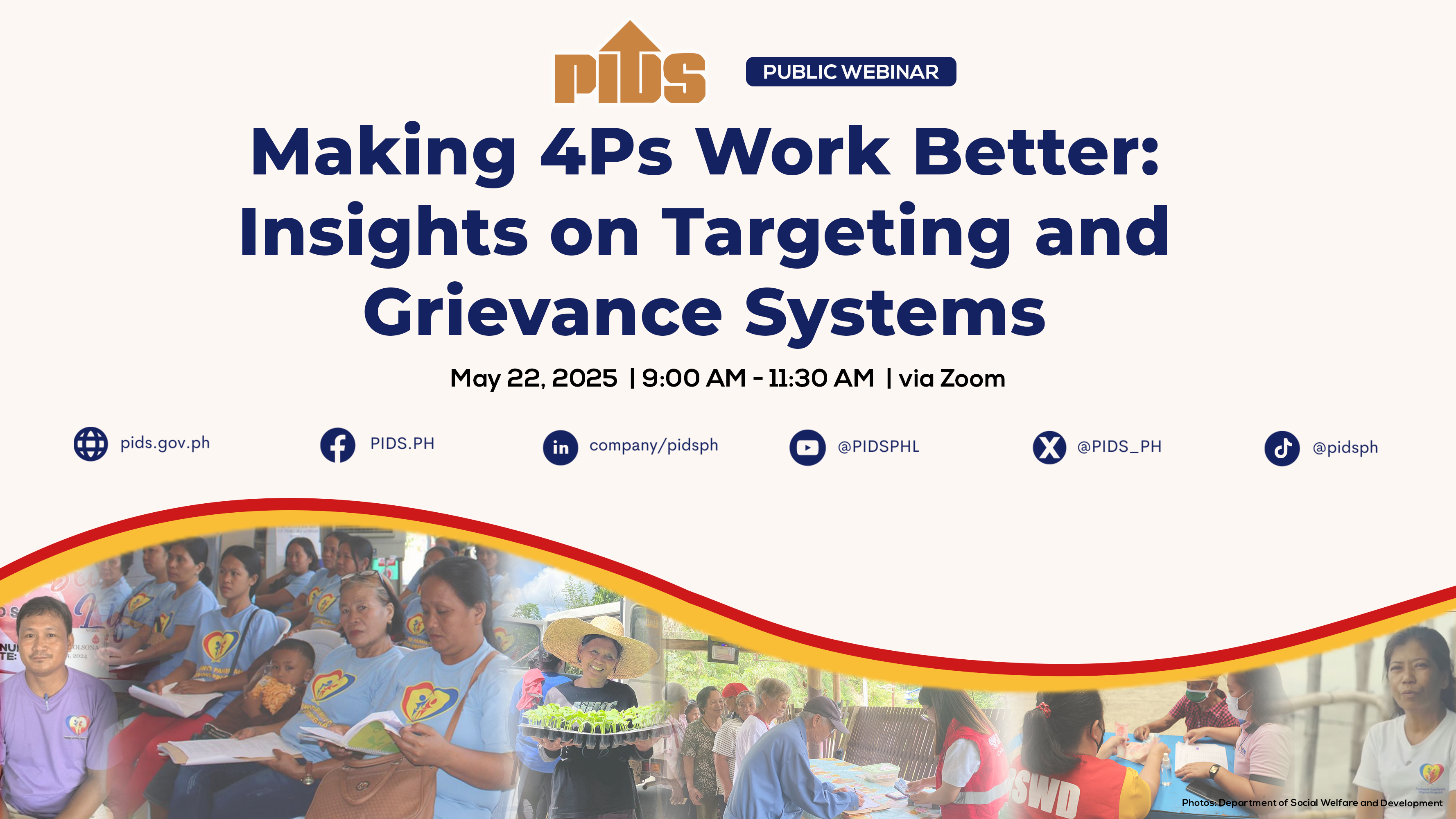Policymakers and donors have long viewed credit programs as salient means to develop the agriculture sector, especially the small-farm agriculture. Credit programs in the country have evolved from subsidized directed credit programs to a more market-based approach. There have been little to no studies that examine poor agricultural producers’ access to credit and how it affects agricultural performance, especially in the context of Agrarian Reform Beneficiary Organization (ARBO) members. This policy study utilized primary data from the Baseline Survey of Project ConVERGE, a project of the Department of Agrarian Reform, to analyze the borrowing incidence among ARBO member households, particularly those engaged in farm production. It appears from the results of the study that: membership in an ARBO is associated with better credit access; borrowing ARBO agricultural households are better off than nonborrowing ARBO agricultural households; and farmer associations/cooperatives are among the top sources of agricultural credit in the countryside aside from microfinance institutions; and Certificate of Land Ownership Award (CLOA)-holding ARBO agricultural households have higher borrowing incidence than the average ARBO agricultural households. Strengthening the capacity of credit retailers through trainings, especially in leadership and credit management, is needed to further improve their lending performance.
Comments to this paper are welcome within 60 days from date of posting.
Email publications@mail.pids.gov.ph.

